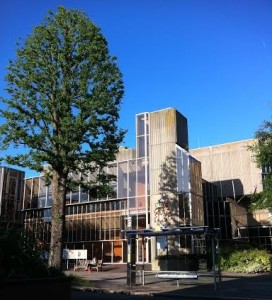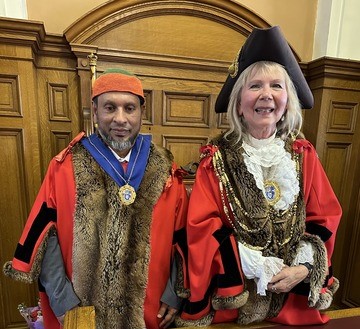Brighton and Hove City Council is a local authority in urgent need of red tape reduction – but will is new 38-seat majority Labour administration provide this?
This week we have got our first indication of what the answer to this question might be as the new committee structure has been published at the “annual council” meeting. The result is a step in the right direction, with some caveats.
Brighton’s bureaucratic nightmare began under the last Labour administration, when, following the 2019 election, Labour embarked on a “quango-creating spree”, massively increasing the number of boards, working groups and task and finish groups on the council.
The extent of this became clear to me in 2021 when I was doing some research for the Conservative submission to the Local Government Boundary Commission for England’s review of Brighton and Hove City Council’s ward boundaries.
The Boundary Commission began its work by seeking evidence on Brighton and Hove’s institutional structures to determine how many councillors should make up the new council.
At the time, Labour and Greens had been calling jointly for an increase in the size of the council from 54 to 58 councillors, saying their workload had become simply too much.
When I looked into the matter, I found that much of this workload was self-inflicted by the Labour leadership of the council. It had been creating new groups and boards left, right and centre and had begun to overload decision-making and grind the council’s machinery to a halt.
To answer the question the Boundary Commission had asked, I researched how the workload requirement, defined by its number of committees, had changed over time to see the overall picture.
What I found was that, after an efficiency process undertaken by the council in the early 2010s, the workload on core committees had fallen substantially.
Committees that were previously made up of 15 members, for example, had been reduced to 10-member committees during the streamlining process overseen by the council’s chief legal officer.
Where the workload had increased, was in the number of ad hoc boards, other bodies and task and finish groups.
These bodies are determined by the administration of the day to implement parts of their agenda and are meant to address particular issues requiring extra attention – for example, the Black Rock development.
Between 2003 and 2019 there were just a handful of such bodies. However, Labour’s administration of 2019 changed this, creating of dozens of new quasi-committees on all sorts of issues.
By 2021, 42 such ad hoc bodies had sprung up and the council was struggling to cope. In addition to this, there were all sorts of additional structures put in place under the Labour-Green memorandum of understanding that was never published, meaning the burden was probably even greater.

This approach to administration failed. Many of these duplicated functions of other committees and created confused points of decision-making. All met behind closed doors far away from the public eye.
There were so many that the council’s Democratic Services team had been unable to staff them to take minutes. All this detracted from good open and accountable decision-making and simply created a clogged-up council.
So what of the current administration? Labour seems to have seen the error of its ways. In the new council structure published in the past week, the new administration has completely abolished all of these ad hoc groups.
Decision-making has been handed to 12 committees, packed with Labour councillors who will have a large majority on all of them. There are, though, some questions that spring to mind over the new administration’s approach.
First, not content with a majority on all committees, Labour has also taken the role of scrutinising itself on health policy. It has decided that a party member will chair the health scrutiny panel – a role usually held by an opposition councillor. This is not a good look for democracy.
Similarly, the party has decided to have not just a Labour mayor but a Labour deputy mayor too. The deputy will usually become the next mayor.

Traditionally, the mayoralty – partly a ceremonial role and non-party political – has been shared by all parties, reflecting the fact that the city has a broad political base, a fact acknowledged by the new council leader at the annual council meeting on Thursday (25 May).
Many Conservatives will feel perturbed that the goodwill shown by their group on the council to previous mayors such as Councillor Alan Robins, who was afforded a second term during the covid pandemic, was never returned.
All this leaves Labour with no place left to hide: they have centralised power, defined the points of decision-making and even excluded other parties from scrutiny and ceremonial roles.
Labour will no longer be able to hide behind layers and layers of bureaucracy when things go wrong. The votes of Labour will be seen plain and clear.
The annual council meeting also showed the Labour-Green alliance to be alive and well, with the Greens voting en masse to support Labour’s break with convention with respect to the mayoralty. Tout change. Rien ne change. (Everything changes. Nothing changes.)
Samer Bagaeen is a Conservative member of Brighton and Hove City Council.









Can’t CLLR Bagaeen count ? Why on earth does he believe that the greens and labour need an alliance?
I don’t think he did.
Given that the Mayor and Deputy posts take their holders effectively ‘above the fray’, it is not really surprising that the Greens don’t want to effectively lose another councillor given their depleted squad. What’s more surprising is that the Tories would seemingly rather play with the dressing-up box than get on with scrutinising council decisions as best they can given the large Labour majority.
Cllr Bagaeen is right to point out that B&H remains very pluralistic – even at this high watermark Labour got 47% of the vote, so more votes went against them than for them. Perhaps he might consider supporting voting reform, so that 47% of the vote doesn’t deliver 70% of the seats, as happened the other week.
Ah yes, PR and AV voting systems would also be interesting. I’d like to see mandatory voting, even if it’s an active choice to abstain, not saying anything or spoiling one’s vote is pointless.
I see Samer is continuing with his bitterness towards the council. Perhaps he should take that energy and support this fairly elected council in which his party lost with decorum?
Not sure I want or need a lecture on democracy and accountability from a Tory.